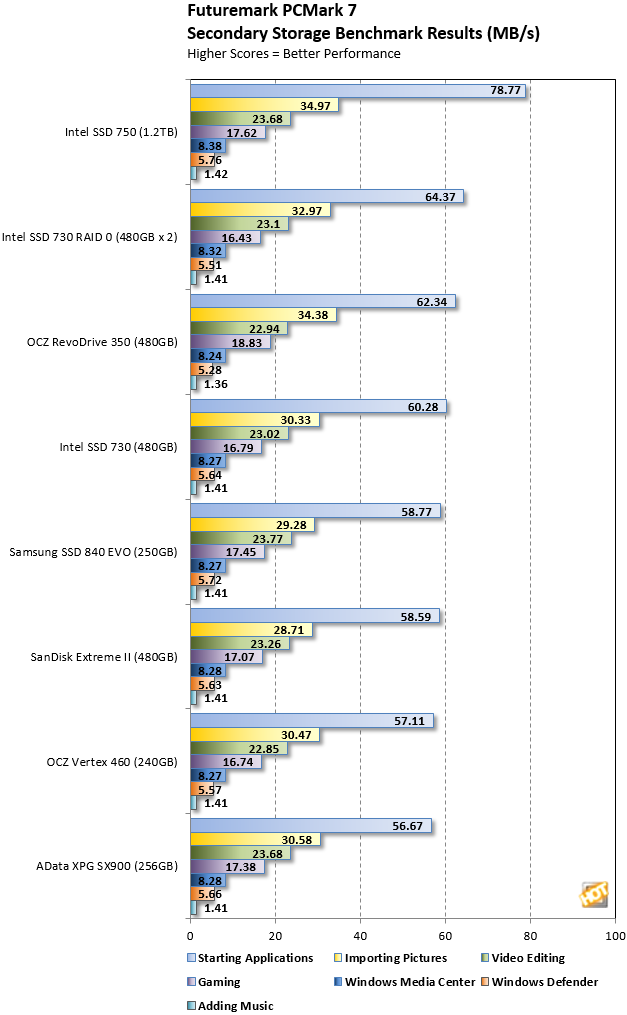We like PCMark 7's Secondary Storage benchmark module for its pseudo real-world application measurement approach to testing. PCMark 7 offers a trace-based measurement of system response times under various scripted workloads of traditional client / desktop system operation. From simple application start-up performance, to data streaming from a drive in a game engine, and video editing with Windows Movie Maker, we feel more comfortable that these tests reasonably illustrate the performance profile of SSDs in an end-user / consumer PC usage model. A complete picture of an drive's performance is best represented by a good mix of both synthetic and real-world type tests and workloads.
 |
PCMark 7 Storage Subsystem Benchmark
| | Real-World Trace-based Workloads | |

In this test we left the P3700 out of the mix, but included mostly consumer-grade SATA SSDs, a RAID 0 SATA setup with Intel's potent SSD 730 drive and the OCZ RevoDrive 350 PCI Express card. As you can see, the SSD 750 performed very well, especially in the Starting Applications test, where it was ahead of the fastest RAID 0 setup by about 22 percent. The only drive that was able to catch the SSD 750 was the RevoDrive 350 which did slip past it in the Gaming test, though not by much. Overall, the SSD 750 was by far the dominant Solid State Drive of the bunch.

